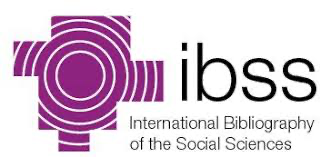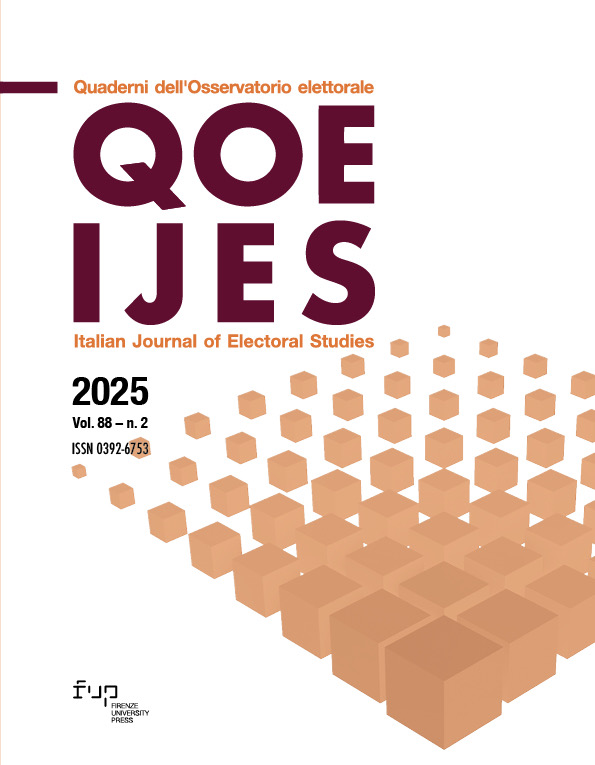About
Quaderni dell'Osservatorio elettorale (QOE) – Italian Journal of Electoral Studies (IJES) - is an international scientific journal dedicated to all different dimensions of elections and voting. Founded in 1977 by Mario Caciagli (University of Florence), QOE-IJES is a reference for electoral studies in Italy. Almost half a century later, QOE-IJES is now the official journal of the Italian Society for Electoral Studies (SISE), thanks to an agreement between SISE and the Regione Toscana. The Journal aims at continuing publishing high-quality original papers from both Italian and international scholars, with the aim to further becoming a major outlet of elections and voting, public opinion, political behavior, and party studies in Italy and beyond.
November 2023: QOE - IJES has been accepted for Scopus indexing, underscoring its academic excellence and international relevance. The Scopus Content Selection & Advisory Board (CSAB) conducted a thorough review of QOE - IJES journal and recognised several key strengths: a) Consistent publication of academically sound and relevant articles for an international academic and professional audience; b) Alignment of journal content with the journal's scope and aims; c) Addressing a subject area that is not adequately covered by existing journals.
Class A journals: QOE-IJES has been officially classified as "Classe A" (the highest rating) in two key fields within Area 14 (Political and Social Sciences): "Scienza Politica" (14/A2) and "Sociologia dei fenomeni politici e giuridici" (14/C3). This recognition, granted by the Italian Ministry of University and Research (MUR) and its evaluation agency, ANVUR, underscores the journal’s high scientific impact and credibility across multiple disciplines.
ISSN 2724-4679 (ONLINE) ISSN 0392-6753 (PRINT)
QOE-IJES
QOE-IJES
Editors in Chief
Paolo Bellucci, University of Siena, Italy
Silvia Bolgherini, University of Perugia, Italy
Paolo Bellucci, University of Siena, Italy
Silvia Bolgherini, University of Perugia, Italy
QOE-IJES is indexed in:



QOE-IJES is now making articles available online after the acceptance.
Current IssueVol 88, No 2 (2025)
Published December 31, 2025
Issue Description
The new issue of the Italian Journal of Electoral Studies brings together six original contributions that reflect the substantive and methodological pluralism of contemporary political science. While the articles address distinct research questions and empirical domains, three of them form a focused and explicitly dialogical debate on the condition, legitimacy, and transformation of political parties in contemporary democracies.
The issue opens with three stand-alone empirical contributions addressing key dimensions of contemporary democratic politics. First, Zucaro examines how issue congruence between citizens and parties shapes satisfaction with democracy across different policy domains and national contexts. Next, Prearo and Trastulli introduce an original post-elect... More




